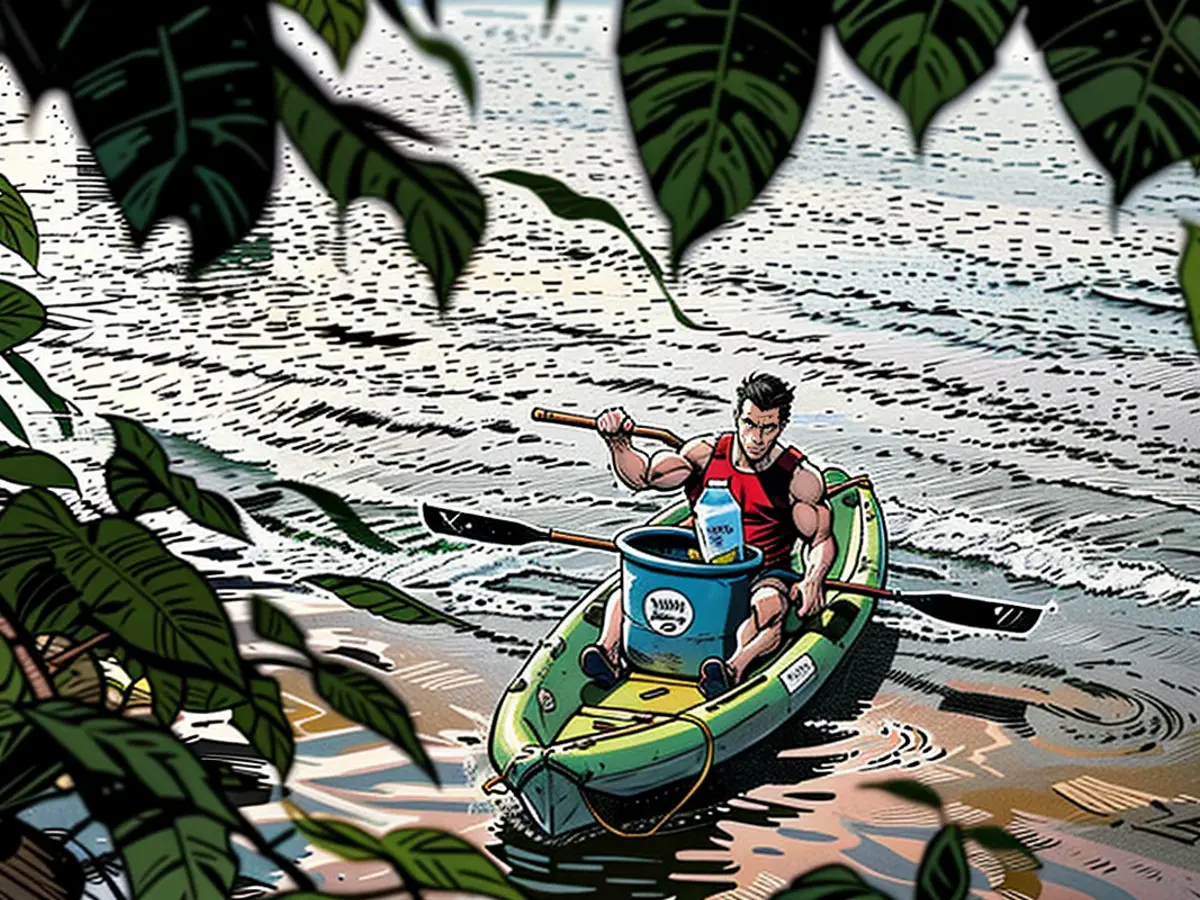Who collects garbage, can kayak for free.
In Leipzig, Hamburg and Berlin, volunteers fish tonnes of trash out of waters. The initiative "Green Kayak" offers free kayaks in exchange for buckets and trash grabbers - with success. The project from Denmark is set to be expanded to more cities soon.
Anyone can borrow a kayak for free - but they must collect trash on their tour. This combination of leisure time and environmental protection sounds as simple and sensible. The project originated in Copenhagen and is currently being implemented in six countries: Denmark, Norway, Finland, Sweden, Japan and Germany. In Germany, the project is known as "Green Kayak" and is currently available in Berlin, Hamburg and Leipzig. It is expected to gain more and more popularity.
Equipped with the green boats are a large bucket and two trash grabbers. A water map provides information on which areas should not be paddled to protect birds or plants. After each tour, the amount of trash collected is weighed and registered.
In Leipzig: 206 kg of trash in two months
During a stroll along the Leipzig waterways, it is noticeable that the waters look exceptionally clean. In "Green Kayak," volunteers have been getting into the vivid green kayaks in Leipzig for some time and collecting trash from the rivers and canals. Birgit Paul from the association Gemeinwohl-Ökonomie Mitteldeutschland, who initiated the project in Leipzig, is thrilled with the results since its start in May. "In the first two months, 116 paddlers and paddlers collected 206 kilograms of trash." During the European Football Championship in Leipzig, helpers mainly collected beer bottles, cans and plastic packaging from the water. "There was really a lot to do," says Paul.
The city of Leipzig estimates that approximately 20 to 25 tons of trash fall into the medium-sized waters annually and must be disposed of. According to the city administration, the amount of trash has increased significantly in recent years. The association Gemeinwohl-Ökonomie Mitteldeutschland plans to offer more boats in Dresden and Halle next year - and in the following year in Jena. All three cities welcome the initiative. However, before people in Dresden, Halle, Jena or other cities can paddle in the green boats, the association still needs sponsors.
From cigarette butts to jewelry
Oke Carstensen, co-founder of the Danish NGO "Green Kayak," who started the project with a friend in 2017 after his master's degree in Copenhagen, is pleased with the good start in Leipzig. "Not bad at all for a completely new city. The high demand has really surprised us positively."
According to Carstensen, a total of around 20 tons of trash is collected annually at all locations. For example, in Berlin, about 1900 kg of trash was collected from the water in 2023. The most common waste items are consumer goods such as plastic packaging or cigarette butts. "We have also already retrieved bicycles, electric scooters or even jewelry from the water," reports the Dane. Clothing items are also not uncommon.
One important goal of the project is to make the use of kayaks available to people from different social backgrounds for free, explains Carstensen. "It's important to us that the offer is free and remains that way, so that everyone who wants to engage in the environment can do so actively." After all, the trash is caused by people, and the environment doesn't distinguish between rich and poor.
In light of Berlin's commitment to environmental protection, the "Green Kayak" project has gained popularity, attracting volunteers to collect environmental pollution from its waters. This international initiative, which originated in Denmark, has now expanded to more cities, including Berlin, Hamburg, and Leipzig.
Leipzig's participation in the "Green Kayak" project has yielded significant results, with volunteers collectively gathering 206 kg of trash from its waterways within two months. This initiative not only promotes environmental pollution prevention but also provides an opportunity for locals to engage in environmental protection activities.
Germany's expansion of the "Green Kayak" project reflects an international collaboration in environmental protection, reaching beyond Berlin, Hamburg, and Leipzig to encourage environmental awareness and action in other cities.






